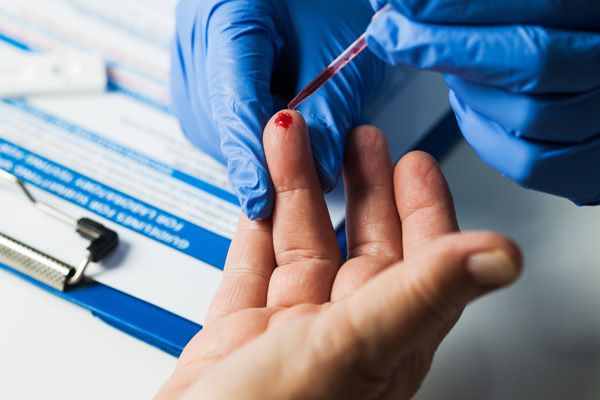Iron is one of the most important minerals in the body. Normal iron levels are vital for your health. Getting an Iron Blood Test is one of the best ways to ensure your iron levels are healthy. Your doctor may prescribe an iron test if you are showing signs of iron deficiency or overload.

Why Should I Get an Iron Blood Test?
The health benefits of iron include maintaining vital functions such as preserving general energy and focus, and the immune system. Whilst eating well and exercising are vital components of living a healthy life, we may still experience certain deficiencies.
By getting an Iron Test you can easily find out if your iron levels are normal.
Anaemia Blood Tests can diagnose different types of anaemia.
Iron Blood Tests can also determine if your iron levels are too high, which could be a sign of hemochromatosis. This can be dangerous and important to treat immediately.
If you suffer any symptoms listed below, it may be advisable to make appropriate lifestyle changes and test your iron levels regularly:
- You have symptoms of iron-deficiency anaemia. Iron-deficiency anaemia is caused by low iron in your system which can cause fatigue, weakness, pale skin, dizziness, shortness of breath, and cold hands and feet.
- You have symptoms of iron overload. Hemochromatosis occurs when you absorb more iron than you need which can cause joint pain, abdominal pain, fatigue, weakness, and changes in skin colour. Without treatment to remove the excess iron, iron overload can cause life-threatening complications.
- You have low red blood cells. Complete blood counts (CBC) are often part of routine physical exams. A CBC can detect potential problems before symptoms develop. If your red blood cell count is low or the cells don’t look normal, your doctor may order iron tests to find out why.
- You have a condition that could interfere with iron absorption. Decreased iron absorption is one cause of iron deficiency. Conditions that interfere with the normal ability of the digestive tract to absorb nutrients, such as celiac disease.
- Your diet is low in iron. Diets low in iron can lead to iron-deficiency. Meat and fish, dark green, leafy vegetables, beans, sweet potatoes, dried fruits, and enriched grain products are good sources of iron. If increasing your iron-rich food intake doesn’t help you feel better, then you may want to consider including a supplement with iron into your daily routine.
Contact Anna Pharmacy Group and let our knowledgeable team of pharmacy professionals help you with your questions and concerns about Iron Health Benefits and how to monitor your iron levels with regular blood tests. We serve areas Carshalton, Sutton, Hackbridge, Wallington & Croydon.
